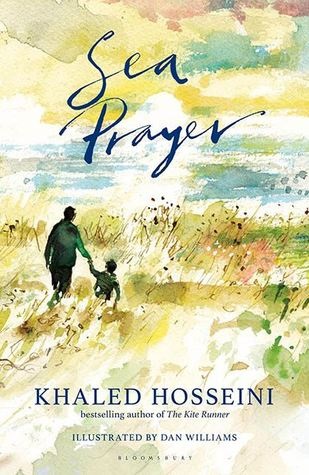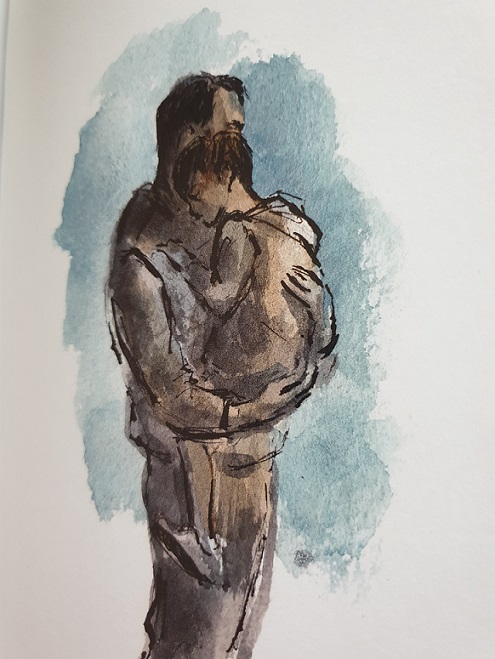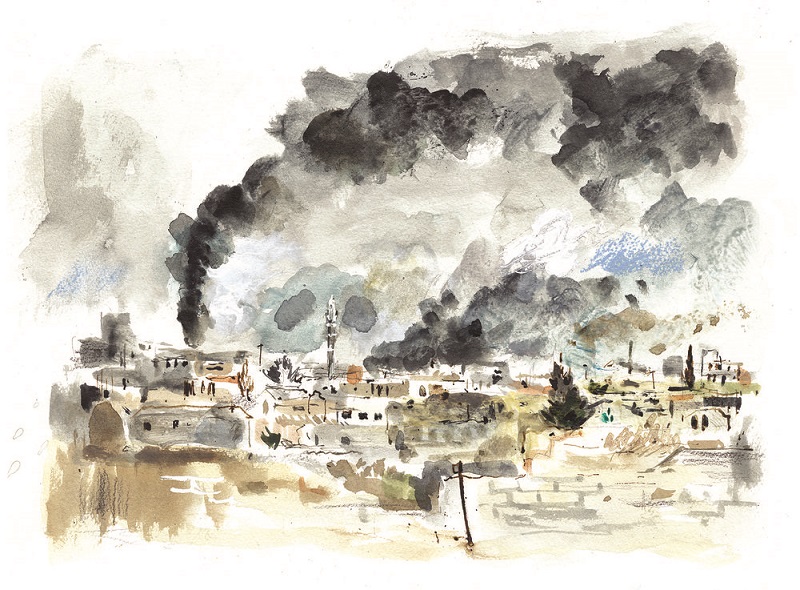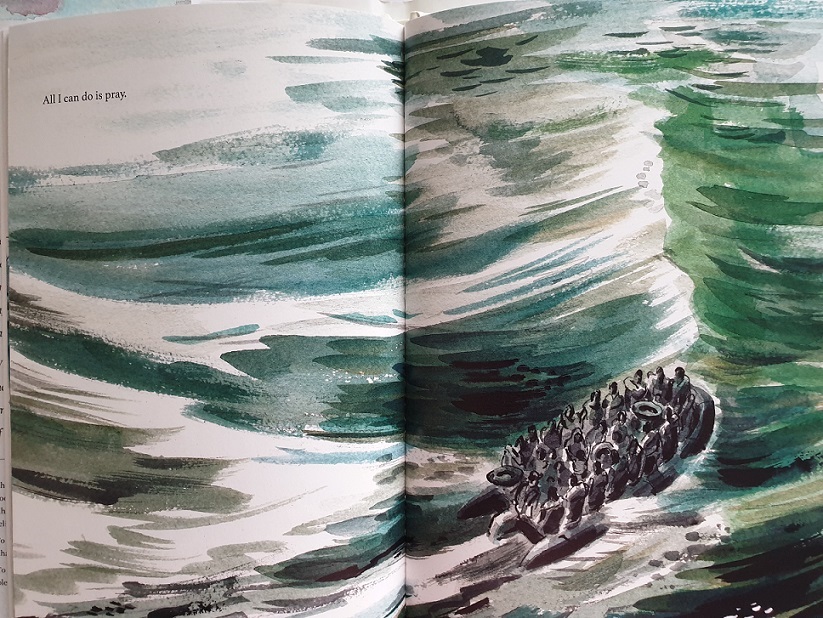
Khaled Hosseini’s Sea Prayer is all of 547 words. In 43 unnumbered illustrated pages.
It’s a powerful moving story of a father and son fleeing the violence and chaos of Syria to a place unknown where they know they are not welcome.
Hosseini of the heart rending best seller, The Kite Runner, said Sea Prayer was inspired by the story of Alan Kurdi, the three- year old Syrian refugee whose dead body was washed ashore somewhere in Turkey in September 2015 as a boatload of refugees tried to flee to Europe via the Mediterranean Sea.
Hosseini once again showed his gift as a story teller capturing the thoughts, the emotions, and the dreams of the father as he and his son take the perilous sea journey.

“I heard it said we are the uninvited. We are the unwelcome. We should take our misfortune elsewhere.”
Most moving were the pages that only had a short sentence and Dan William’s compelling illustrations did the story telling as in the spread showing a procession of sad, weary people in the desert.
The story starts in the book’s front cover: “On a moonlit beach, a father cradles his sleeping son as they wait for dawn to break and a boat to arrive. He speaks to his boy of long summers of his childhood, recalling his grandfather’s house in Syria, the stirring of olive trees in the breeze, the bleating of his grandmother’s goat, the clanking of the cooking pots.
“And he remembers, too the bustling of the city of Homs, with its crowded lanes, its mosque and grand souk, in the days before the sky spat bombs and they had to flee.
“When the sun rises, they and those around them will gather possession and embark on a perilous sea journey in search of a new home.”
Homs is a city in western Syria and the capital of the Homs Governorate which has been devastated by the bombings in 2012.

“These are the things you know.”
The father addresses the son as he recalls when life was gentle and fun:”In the long summers of childhood when I was a boy the age you are now, your uncles and I spread our mattress on the roof of your grandfather’s farmhouse outside of Homs.
“We woke in the mornings to the stirring of olive trees in the breeze, to the bleating of your grandmother’s goat, the clanking of her cooking pots, the air cool and the sun a pale rim of persimmon to the east.
“We took you there when you were a toddler.”
The narration went on to the beginning of their misery: “First came the protests. Then the siege.” As it escalated to “The skies spitting bombs. Starvation. Burials.”
‘These are the things you know,” the father said against the illustration of a bombed-out city.
He described his son’s Homs: “You know a bomb crater can be made into a swimming hole. You have learned dark blood is better news than bright. You have learned that mothers and sisters and classmates can be found in the narrow gaps between concretes, bricks, and exposed beams, little patches of sunlit skin shining in the dark.”
The perilous sea journey is conveyed in these heart-tugging sentences: “Hold my hand. Nothing bad will happen.”

“All I can do is pray.”
The spread showing a boat full of refugees being tossed by big waves in the middle of the sea only has these words, “All I can do is pray.”
The book said Hosseini will donate proceeds of Sea Prayer to the United Nations Refugee Agency and to the Khaled Hosseini Foundation to help fund life-saving relief efforts to help refugees around the globe.
Thank you, JB Baylon, for this book.
